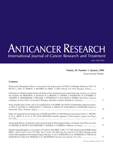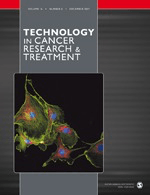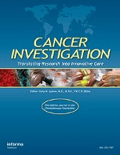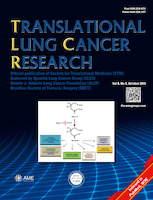
ANTICANCER RESEARCH
Scope & Guideline
Exploring Breakthroughs in Oncology and Medicine
Introduction
Aims and Scopes
- Clinical Cancer Research:
The journal publishes research that includes clinical trials and observational studies, assessing the efficacy and safety of new treatment modalities, including chemotherapy, immunotherapy, and targeted therapies. - Molecular and Cellular Mechanisms of Cancer:
There is a strong emphasis on studies investigating the molecular and cellular pathways involved in cancer development, progression, and resistance to therapies. - Biomarkers and Diagnostic Tools:
Research related to the identification and validation of biomarkers for cancer detection, prognosis, and treatment response is a core focus, aiding in personalized medicine approaches. - Surgical and Radiotherapy Techniques:
The journal includes studies on surgical techniques, radiotherapy advancements, and their implications for patient outcomes, contributing to the optimization of cancer treatment protocols. - Translational Research:
ANTICANCER RESEARCH emphasizes translational studies that bridge laboratory findings with clinical applications, facilitating the movement of discoveries from bench to bedside. - Interdisciplinary Approaches:
Research that integrates various disciplines such as immunology, genetics, and pharmacology in cancer treatment and research is highly valued, reflecting the complexity of cancer biology.
Trending and Emerging
- Immunotherapy and Combination Therapies:
There is a significant increase in studies exploring immunotherapy, particularly in combination with other treatment modalities, reflecting the shift towards harnessing the immune system to combat cancer. - Genomic and Proteomic Profiling:
Research involving genomic and proteomic analyses to identify biomarkers and therapeutic targets is on the rise, showcasing advancements in precision medicine. - Novel Drug Delivery Systems:
Innovative approaches to drug delivery, including nanotechnology and liposomal formulations, are emerging as critical areas of research to enhance treatment efficacy and reduce side effects. - Role of the Microbiome in Cancer Therapy:
An increasing number of studies are investigating the impact of the microbiome on cancer progression and treatment outcomes, indicating a growing recognition of its role in cancer biology. - Patient-reported Outcomes and Quality of Life:
Research focusing on patient-reported outcomes and quality of life assessments is gaining traction, emphasizing the importance of holistic approaches in cancer treatment. - Artificial Intelligence and Machine Learning Applications:
The incorporation of AI and machine learning in cancer diagnosis and treatment planning is becoming more prevalent, reflecting the integration of technology into healthcare.
Declining or Waning
- Traditional Chemotherapy Studies:
With the rise of targeted therapies and immunotherapies, traditional chemotherapy-focused studies appear to be decreasing in number, reflecting a shift towards novel treatment modalities. - Single-agent Trials:
There is a waning interest in studies solely focusing on single-agent trials, as combination therapies and multi-modal approaches are becoming more favored in research. - Basic Research Without Clinical Application:
Research that does not directly translate into clinical implications or applications is less frequently published, as the journal emphasizes studies with clear translational potential. - Epidemiological Studies:
While still important, there seems to be a reduction in the volume of purely epidemiological studies as the focus shifts more towards mechanistic and therapeutic research.
Similar Journals

Oncologie
Bridging theory and practice in cancer care.Oncologie is a distinguished academic journal published by WALTER DE GRUYTER GMBH, focusing on the dynamic and vital field of oncology. Established in 1999 and continuously published until 2024, this journal provides a platform for high-quality research and advancements in cancer treatment, prevention, and diagnosis. With an ISSN of 1292-3818 and an E-ISSN of 1765-2839, it is indexed in various databases, contributing to its growing visibility. Although categorized in the Q3 quartile for oncology research as of 2023, Oncologie offers essential insights and fosters scholarly dialogue among researchers, professionals, and students interested in oncology. Its unique contributions aim to bridge the gap between theoretical frameworks and clinical applications, making it a valuable resource for those seeking to advance their knowledge and expertise in cancer research.

Chinese Journal of Cancer Research
Shaping the future of oncology through rigorous scholarship.Chinese Journal of Cancer Research, published by Chinese Journal Cancer Research Co, is a pivotal platform for disseminating significant findings in the field of oncology. Since its inception in 1988, the journal has provided a comprehensive forum for cancer research, featuring peer-reviewed articles that cover various aspects of cancer biology, prevention, diagnosis, and treatment. Although the journal's coverage is currently discontinued in Scopus and holds an HIndex that has not been specified, it is ranked in the 65th percentile in Medicine - Oncology and the 48th percentile in Biochemistry, Genetics and Molecular Biology - Cancer Research. This reflects its commitment to maintaining quality and relevance in the rapidly evolving field of cancer research. Researchers, professionals, and students are encouraged to explore its rich archive of studies and breakthroughs to enhance their understanding and further their research. For access, the publication remains instrumental for those invested in advancing the global fight against cancer.

npj Precision Oncology
Transforming Oncology Through Open Access Innovationnpj Precision Oncology, an esteemed peer-reviewed journal published by NATURE PORTFOLIO, stands at the forefront of oncological research and precision medicine. Launched as an Open Access platform in 2017, this journal not only facilitates the dissemination of innovative research findings but also ensures that crucial insights are freely accessible to the global scientific community. With an impressive ranking of Q1 in both Cancer Research and Oncology, and a commendable Scopus rank that places it in the top 15% of its field, npj Precision Oncology is dedicated to advancing our understanding of personalized cancer therapies through high-quality research. Catering to professionals, researchers, and students alike, this journal aims to bridge the gap between laboratory science and clinical application, paving the way for transformative approaches in oncology. As the landscape of cancer treatment evolves, npj Precision Oncology remains a crucial platform for fostering collaboration and sparking ideas that can significantly impact patient care.

TECHNOLOGY IN CANCER RESEARCH & TREATMENT
Transforming cancer care through innovative technology.TECHNOLOGY IN CANCER RESEARCH & TREATMENT, published by SAGE Publications Inc, is a leading open-access journal dedicated to the intersection of technology and oncology. Since its inception in 2002 and with an impactful transition to open access in 2018, it has garnered attention for its commitment to disseminating groundbreaking research that explores innovative methodologies and technologies in cancer diagnostics and therapeutics. With ISSN 1533-0346 and E-ISSN 1533-0338, the journal is highly relevant in the fields of Cancer Research (Q3), Medicine (Q2), and Oncology (Q3), as indicated by its 2023 category quartiles. Its Scopus rankings further highlight its position within the research community, standing at #186 out of 404 in Medicine and #141 out of 230 in Cancer Research. Through a carefully curated selection of articles, this journal aims to bridge the gap between technological advancement and clinical application, providing a vital resource for researchers, healthcare professionals, and students striving to improve cancer treatment outcomes.

CANCER INVESTIGATION
Unraveling the complexities of cancer through rigorous inquiry.CANCER INVESTIGATION is a distinguished peer-reviewed journal published by Taylor & Francis Inc, dedicated to the advancing field of cancer research and oncology. With an ISSN of 0735-7907 and E-ISSN of 1532-4192, this journal has been a pivotal resource for professionals and researchers since its inception in 1983, continually contributing to the evolving landscape of cancer investigation until its convergence in 2024. CANCER INVESTIGATION boasts noteworthy rankings in 2023, including Q3 in Cancer Research and Q2 in Medicine (miscellaneous), highlighting its relevance and impact in these critical areas. The journal's commitment to disseminating innovative research and comprehensive reviews makes it an essential platform for those engaged in cancer studies and related disciplines. While currently not available as an open-access publication, CANCER INVESTIGATION remains an invaluable tool for understanding the complexities of cancer, offering insights that drive scientific advancements and improve patient outcomes.

CANCER GENE THERAPY
Innovating Genetic Solutions for OncologyCancer Gene Therapy, published by SpringerNature, stands at the forefront of research in the fields of cancer research, molecular biology, and molecular medicine. With a robust impact factor reflecting its significant influence—ranking in the Q2 category for cancer research and Q1 for both molecular biology and molecular medicine—it serves as an essential resource for scholars and practitioners alike. Since its inception in 1994, the journal has dedicated itself to advancing the understanding and therapeutic application of genetic innovations in oncology. Notably, it holds distinguished Scopus ranks, placing it among the top tier journals in its categories, underscoring its importance to the scientific community. While open access options are not available, the compelling research published here offers invaluable insights into the latest advancements and strategies in cancer therapy. Engaging with *Cancer Gene Therapy* not only keeps professionals informed but also inspires future innovations in the quest for effective cancer treatments.

Expert Review of Anticancer Therapy
Connecting discovery and application in anticancer strategies.Expert Review of Anticancer Therapy, published by Taylor & Francis Ltd, is a distinguished journal focusing on the dynamic and ever-evolving field of oncology and pharmacology. Since its inception in 2001, this journal has played a pivotal role in disseminating critical reviews and analyses of novel anticancer therapies, fostering a deeper understanding among researchers and practitioners alike. With an impressive categorization in the 2023 Q2 quartiles for both Oncology and Pharmacology, it ranks #98 out of 272 in Pharmacology and #165 out of 404 in Oncology according to Scopus metrics, placing it well within the upper echelons of academic journals. The journal’s rigorous peer-review process ensures high-quality publications that are integral for advancing cancer research and therapeutic strategies. Although currently not an open access journal, it aims to bridge the gap between scientific discovery and clinical application, making it an essential resource for anyone involved in the fight against cancer.

Wspolczesna Onkologia-Contemporary Oncology
Driving Clinical Applications with Groundbreaking StudiesWspolczesna Onkologia - Contemporary Oncology is a leading open-access journal dedicated to the field of oncology and radiology, published by TERMEDIA PUBLISHING HOUSE LTD since 1999. With its ISSN 1428-2526 and E-ISSN 1897-4309, the journal has established a prominent place in scholarly publishing, contributing significantly to the advancement of cancer research and treatment modalities. Located in Poznań, Poland, it operates within a framework of high academic standards, currently holding a Q3 quartile ranking in Oncology and Q2 in Radiology, Nuclear Medicine, and Imaging for the year 2023. The journal serves as a valuable resource for researchers, medical professionals, and students alike, providing a platform for innovative studies and reviews that drive the clinical application of oncological practices. With its commitment to open access, Wspolczesna Onkologia allows for widespread dissemination of knowledge, ensuring that cutting-edge research is accessible to a global audience, thus bridging gaps in cancer care and fostering collaborative advancements in the field.

Translational Lung Cancer Research
Pioneering breakthroughs in oncology and lung cancer treatment.Translational Lung Cancer Research is a leading journal dedicated to advancing the field of oncology, particularly focusing on groundbreaking discoveries in lung cancer treatment and management. Published by AME Publishing Company, this journal boasts an impressive Q1 classification in the 2023 Oncology category, reflecting its significant contribution to the scientific community, with an outstanding Scopus rank of #92 out of 404 in Medicine _ Oncology, placing it in the 77th percentile. With its commitment to open access, the journal fosters international collaboration and accessibility, making cutting-edge research available to a wide audience. The scope of Translational Lung Cancer Research encompasses clinical trials, experimental studies, and translational research that bridge the gap between laboratory findings and clinical applications. Researchers, professionals, and students seeking to keep abreast of the latest developments in lung cancer research will find invaluable insights within its pages. For further information, please contact at FLAT-RM C 16F, KINGS WING PLAZA 1, NO 3 KWAN ST, SHATIN, HONG KONG.

BRITISH JOURNAL OF CANCER
Pioneering Insights in Oncology Since 1947.The British Journal of Cancer, published by SpringerNature, stands as a preeminent resource in the fields of Cancer Research and Oncology, with a distinguished history of publication dating back to 1947. With its Q1 rank in both categories for 2023, this journal is among the top-tier publications, offering cutting-edge research and insights into the biology, etiology, and treatment of cancer. The journal’s rigorous peer-review process ensures that readers are presented with high-quality studies that contribute to the advancement of cancer knowledge and clinical practice. Operating from the United Kingdom, it has garnered a notable impact factor and ranks impressively within Scopus, making it an essential publication for researchers, healthcare professionals, and students who are dedicated to understanding cancer's complexities. Access to the journal's articles is available in traditional formats, providing a versatile platform for disseminating pivotal research. As we move towards a future where cancer treatment and prevention remain crucial, the British Journal of Cancer continues to play a vital role in shaping the dialogue and discoveries within the oncology community.